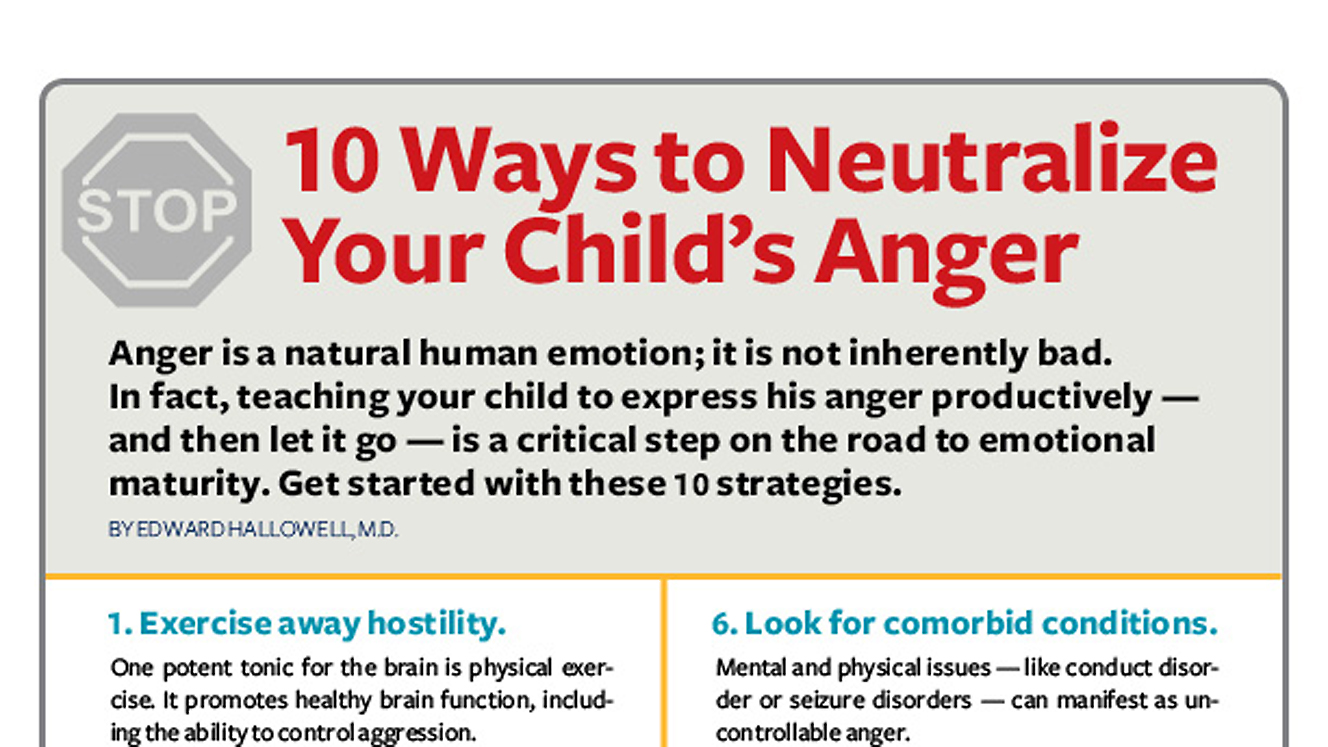Expressing anger is a way to let go and vent. Some people do their best to suppress their feelings, so that energy is not released. When anger is not used destructively, it has a useful purpose because it helps release accumulated energy. Energy. Otherwise, it may damage the body over time.
There is a clear difference between neutralizing anger and controlling it; Trying to control anger increases the likelihood of losing control when it comes from fear, which can attract undesirable things and cause the opposite effect: this anger controls you.
Anger goes through several levels; Knowing how to recognize them will help you know where your anger is:
The cycle of anger is activated; the person feels irritated and upset.
At this level, thought analyzes the reasons for irritation, but does not go beyond mild discomfort.
Tension increases and intensifies; changes the tone of the voice and the gesture of the face and body language is more aggressive. Small outbursts of anger may appear, but most of the expression remains inside.
This level determines whether we will move on to something else that simply annoys or really annoys us.
Here begins the expression of anger, which arises with actions that lead to greater discord.
At this level, the individual is out of control, confused and fearful; is afraid, but this feeling can take you back to a lower state and get rid of the last level of anger.
Here is the intention to eliminate the source of his fury, with totally aggressive behavior. This doesn’t always lead to violence, but the intensity of anger is so great that you can easily lose control; most acts of violence at this level include passionate crimes and homicides.
Learning to neutralize anger counteracts the tensions it generates
Do not react to move away from the triggers that take you away from its center. By not participating in the game, he becomes an impartial observer and does not lose control; no one can make you react without your consent and only you can choose.
The second way to neutralize anger is to recognize aspects of oneself in others; You can see the frustrations you’ve experienced before in your enemies. Understanding others’ negative reactions will help you react more compassionately and neutralize your tendency to anger.
The third way to neutralize anger is to focus on emotions that are contrary to how you feel; that is, you choose an emotion that is different from the one you’re feeling right now, what you can do with constant practice. It’s a way to show how powerful individual choice can be.

